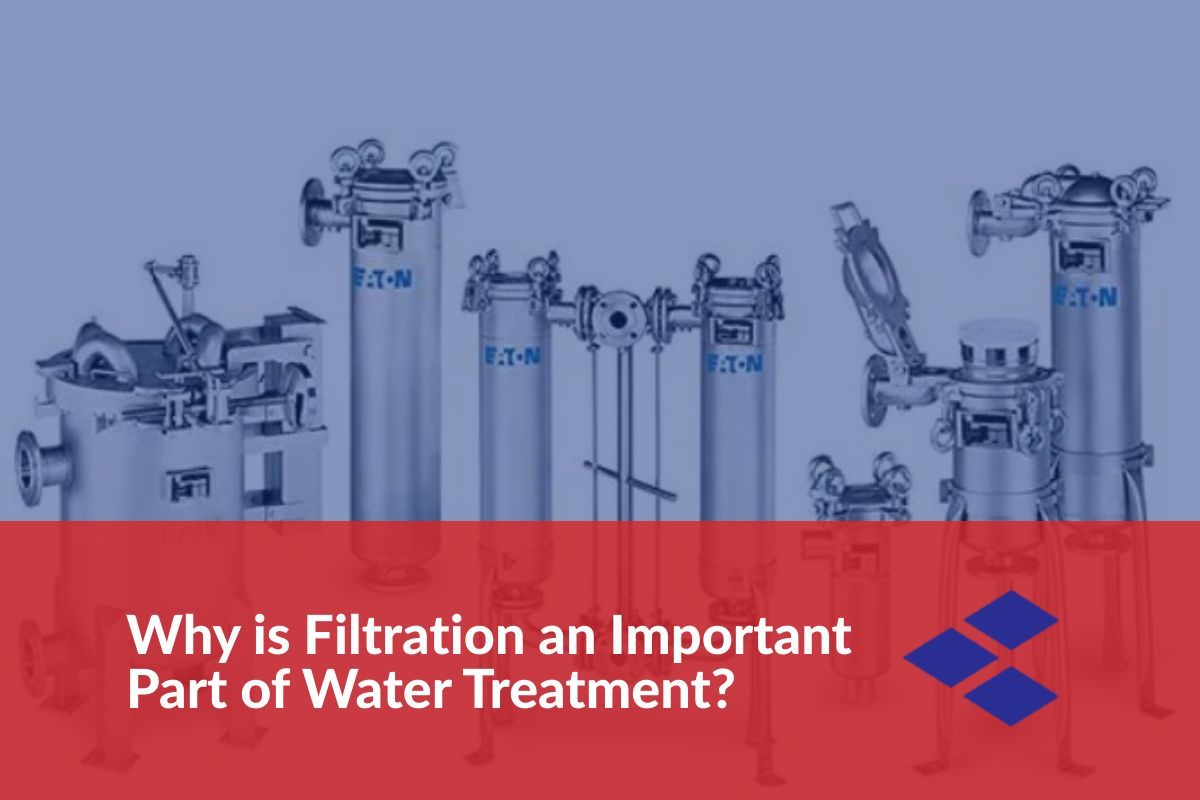
Water is a huge part of daily life that many take for granted. However, most people rarely take the time to think about where the water they consume comes from or the treatment process it goes through to ensure it is safe for consumption. Water treatment is vital to produce clean drinking water, free from potentially hazardous contaminants. But what exactly is it that makes filtration such an important part of water treatment?
What is Water Filtration?
Many different types of water filtration may be involved in the water treatment process. Filtration is particularly important in various commercial water and wastewater reuse situations. In many applications, pre-filtration is necessary due to the high number of suspended solids that may be present in the water being treated for use. Filtration commonly occurs over many different steps during the treatment process. These steps ensure the water meets the required standards for use.
Methods of Water Filtration
Water may go through many different types of filtration during the treatment process. Most filtration processes start with coarse filtration and then progress to finer filtration, depending on the intended use of the water.
Coarse filters such as fine mesh screening, media filtration, and membrane filtration are utilized to remove contaminants of a larger size, such as sand, clay, and other sediments. After passing through larger filters, the water moves on to finer filters such as reverse-osmosis filters, ultrafiltration, microfiltration, and nanofiltration. Once the water has passed through these finer filters, it may be disinfected to remove pathogens present in the water, after which the water may be further treated through advanced oxidation and coagulation.
Why is Filtration an Important Part of Water Treatment?
Filtration is a vital process to make water safe for use in various industries, including food and beverage applications. The demand for safe, decontaminated water is incredibly high. Different types of water, including groundwater, surface water, and even pre-treated wastewater, can be successfully reused when properly filtered and treated. These types of water may contain a variety of different solids, as well as smaller particles that could be potentially hazardous for consumption or use in other applications. Filtration processes, such as fine mesh screening, media filtration, and membrane filtration, are the initial treatment methods for creating safe, usable water.
Potential Contaminants
There is a diversity of potentially hazardous contaminants that may be present in untreated water. These contaminants vary in size, which makes it necessary to utilize a variety of different filtration processes for the reuse of water. Larger contaminants like sand, clay, silt, and other large contaminants are commonly found suspended within groundwater, surface water, and wastewater. These large particles must be removed first to prevent clogs and breakage of the finer filters. While this stage of filtering improves the water quality, other contaminants may still be present in the water. Bacteria and pathogens can cause water-related diseases and illnesses if consumed.
The most common contaminants in drinking water include Salmonella, E. Coli, Norovirus, Hepatitis A, and heavy metals like copper. These contaminants can cause issues like respiratory problems, kidney problems, and even cancer. If polluted water is used for the purpose of showering, skin and hair issues can occur.
Considerations When Choosing a Water Filtration System?
There are many different factors to consider when choosing a water filtration system. Choosing the right filtration method can be a complex decision, depending on the needs of your specific application. First, you must consider the purity of the water your application requires. While food and beverage industry applications require the utmost water purity, other applications may require a lesser degree of purity.
Secondly, you have to consider the size of your application. Larger industrial liquid filtration systems are more expensive but may be necessary for larger applications. The amount of outflow you need is very important to understand when choosing a water filtration system.
You must also consider the amount of maintenance you will need to perform on the system. Backflow maintenance is vital to most filtration systems in order to prevent clogs and filter breakage, allowing your outflow to remain consistent and your filtration system to operate efficiently.
Filtration in Water Treatment
The health and safety of your customers are paramount in any business. When it comes to utilizing water in your business applications, filtration is necessary to ensure your water is safe. Filtration removes harmful contaminants from new and reused water, such as groundwater, surface water, and wastewater, allowing that water to be used safely and effectively. This makes filtration an incredibly important part of the treatment process. Choosing the right filtration process for your application ensures your production takes place orderly and competently.
For more information about water filtration systems, contact one of ESA’s water filtration experts today.
Arthur Pue
Arthur Pue is the President of Engineering Sales Associates. Connect with him on LinkedIn.
